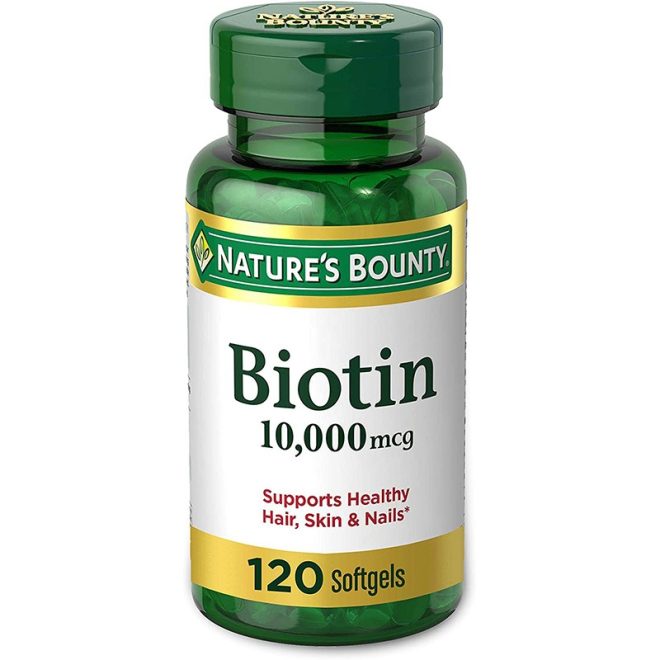
Biotin Supplements: How to Choose the Right Biotin Supplement for Your Health?
Biotin supplements can help keep your hair and nails strong. They can also help with pregnancy and breastfeeding. Here’s how to choose your supplement.
Stronger nails, stronger skin, and healthier hair; Biotin has many benefits for our bodies. Biotin plays an important role in pregnancy and other functions in the body. Biotin supplements are taken when the body lacks biotin. While most people get some biotin from their daily diet, it is believed that taking biotin in the form of a biotin supplement can help treat diabetes and maintain healthy hair and clear skin. However, it is important to remember that although biotin is good for our bodies, taking biotin supplements every day can also be harmful and cause adverse effects. Here is your guide to choosing the right biotin supplement for you and understanding how much is the right dosage
What is biotin?
Also known as vitamin B7, biotin is an essential vitamin that is important for the metabolism of fats, carbohydrates, and amino acids. Products containing this water-soluble vitamin are called biotin supplements and are usually sold in tablet or other forms. People often remember the positive effects of biotin supplements on nails, skin, and hair. A study published in the Journal of Nutrition shows that biotin supplements are good during pregnancy and breastfeeding. It helps improve embryonic development.

Why do you need biotin supplements?
While there are many foods that contain biotin, many people take biotin supplements for additional benefits. People need biotin for many bodily functions, including keeping their skin and nails healthy. It supports many organs in the body, including the nervous system, liver, and eyes, by helping produce enzymes that help cells function properly. It plays a role in converting proteins, fats, and carbohydrates into energy, and is therefore also used as a dietary supplement. Biotin supplements have helped many people grow and strengthen their hair while also improving hair shine.
What other biotin supplements are available?
Biotin products are not just made from biotin, they also contain chemicals like fillers, binders, and preservatives. These help stabilize the biotin and aid in the manufacturing process. Some additional ingredients are cellulose, magnesium stearate, or silica, which help form the tablet and prevent clumping. Some supplements also contain other nutrients like zinc, vitamin C, or selenium. These provide the benefits of biotin for hair, skin, and nails. Some biotin supplements are available in liquid or gummy form. These biotin supplements may contain sweeteners, flavors, and colors. It is important to check the ingredients list, especially if someone has allergies or sensitivities.
What are the different biotin supplements?
Biotin supplements come in different forms to meet the needs and preferences of different users.
1. Tablets and capsules
These are the most common types of supplements and contain biotin powder. They can be taken in the same dosage as other tablets.
2. Softgel capsules
These are similar to capsules, but with one difference. Softgel capsules contain biotin dissolved in oil, which may help increase absorption in some people. They are also considered easier to swallow and less messy.
3. Gums
Biotin supplements have recently been developed as easy-to-chew gums and have become popular due to their pleasant taste. They are often used by people who do not want to take medication.
4. Powder
The powder form of Biotin allows people to easily mix it with food or drink. It is especially useful for people who have trouble swallowing or chewing tablets.
5. Multivitamins
Some vitamins contain biotin along with other vitamins and minerals, providing many nutrients in a single nutritional supplement.
How to choose the right biotin supplement?
There are many biotin options on the market, and choosing can be easy. However, keeping a few simple points in mind when making your decision can make the whole process much easier.
- Before taking this medication, it is important to consider any specific conditions or concerns, as well as the recommended daily intake to avoid any side effects that may occur. It is important to talk to your doctor if you need a higher dose or have specific medical goals.
- Choose supplements that have been tested for purity and potency, as well as having minimal fillers, additives, and allergens.
- Supplements should be chosen based on personal preference and ease of use. Most reputable brands have a clear and transparent list and good reviews. These will help people meet their health needs with supplements.
- It is important to compare prices and evaluate the value of the service, and to make sure the product is within its shelf life and packaged appropriately.
What’s the difference between Biotin 1000 and 5000: Who should take what?
Dosage is the main difference between Biotin 1000 mcg and Biotin 5000 mcg. It affects how the medication is used and who can use it. Most adults are given 1000 mcg of biotin to maintain their overall health or to treat a condition when they take the pill as part of their daily needs.
This means that users looking to boost metabolism and overall health may find a lower dose sufficient. On the other hand, when dealing with specific issues such as hair loss, brittle nails or metabolic diseases, more biotin will help, so using more medication will be beneficial. Some people may choose to increase the dose if 1,000 micrograms of biotin is not working, but this should be done after proper counseling and careful attention to any health side effects that may be present in the body.

Dosage for biotin supplements?
Biotin supplement dosage varies based on individual needs and goals. The recommended daily intake for adults is around 30 micrograms, which is generally enough to maintain general health. However, higher doses of 1000 to 5000 mcg are often used for certain conditions, such as hair loss or metabolic issues.
Biotin is widely considered safe for long-term use, and many people take it regularly without any side effects. However, it is very important to follow the recommendations on the supplement box and seek medical advice before starting a high-dose program, especially if you are previously ill or taking other medications. This will ensure that the supplement is suitable for your individual needs while avoiding the risk of side effects or drug interactions.
Can I take biotin supplements every day?
It is not a good idea to take biotin every day. The FDA does not recommend daily biotin use. However, this study published by StatPearls says that if you are breastfeeding or pregnant, a dose between 5 mcg/day and 35 mcg/day would be recommended.
How to take biotin?
Biotin supplements should only be taken after strictly following the instructions on the product and your doctor’s prescription, as dosage varies from person to person. However, the following points should be kept in mind:
- It is best to take the medication at the same time every day.
- People can take biotin with or without food; however, eating something while taking the medication will reduce stomach problems and increase absorption.
- Drink water to facilitate digestion when taking tablets, capsules or softgels.
- Powder or liquid supplements should be mixed with water and instructions should be followed.
- Biotin medicine should be stored at room temperature and in dry conditions to prevent deterioration.
- Remember not to take biotin supplements without consulting your doctor.
Who should avoid biotin supplements?
Although biotin supplements are generally safe and can be taken safely, caution is always advised. Women who are pregnant or breastfeeding should talk to their doctor before taking biotin, as the benefits of supplements have not been fully studied. Check out other side effects of biotin before deciding to take this supplement.
There are also some medical conditions, such as kidney disease, where people should not use biotin or should use it only under a doctor’s supervision. People with thyroid disease who are taking medications to treat it should also be careful, as high levels of biotin can interfere with these functions and change how these medications work in the body.
